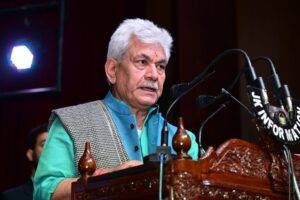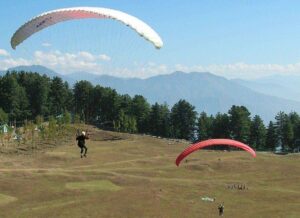Last Updated on June 27, 2021 at 3:51 pm
Prime Minister Narendra Modi in a meeting which was held with political parties from Jammu and Kashmir clearly indicated that the delimitation should happen quickly to gain momentum in political activities.
After August 5, 2019, the split of the state into two Union Territories led to reduction in strength of the J&K assembly to 83 from 87.
On March 6, 2020, the government constituted the Delimitation Commission, headed by retired Supreme Court judge Ranjana Prakash Desai, which was tasked with winding up delimitation in J&K in a year but it was later granted a year’s extension.
Also Read: ‘PM Modi wants cooperation and participation on delimitation from everyone’
Prior to August 5, 2019, carving out of J&K’s Assembly seats was carried out under the J&K Constitution and Jammu and Kashmir Representation of the People Act, 1957.
J&K witnessed its last delimitation exercise in 1994-95, after 22 years, which led to an increase in the number of Assembly constituencies from 76 to 87. The Jammu region then saw an increase of five seats (from 32 to 37 seats), the Kashmir region an increase of four seats (from 42 to 46) and Ladakh two seats (from two to four).
The state as a whole had a total of 111 seats; with 24 reserved and vacant for Pakistan occupied Kashmir (PoK), while J&K would hold elections for 87 seats, including four from Ladakh, after a six-year term.
The much-awaited process is likely to add seven more constituencies to the current 83-member Assembly of the Union Territory (UT).
Also Read: Census data for delimitation creates rift between BJP and Jammu based parties
Aijaz Ashraf Wani, senior assistant professor of Political Science, University of Kashmir told The Hindu that there is a set criteria for carving out new constituencies, the BJP will only gain if the seats are increased in the districts. “Though it seems out of seven new seats, there are by and large chances of equal distribution between the Kashmir region and the Jammu region,” said Wani.
Further he added that the delimitation process will become a major poll plank for the BJP in elections to show how they tried to break the domination of the Kashmir region by increasing seats in the Jammu region. “Wait is to see how many they can actually win on the ground,” he added.
Talking about its link with elections, Wani, said that there is no correlation between the two exercises, delimitation and elections as they both are independent exercises but BJP wants to put a sequence to it.
There are apprehensions that some of the reserved seats from PoK may also be unlocked and PoK migrants allowed to vote for them in a similar manner like Kashmiri Pandits vote for constituencies in valley while being based in Jammu and elsewhere.
Also Read: Delimitation in progress in J&K, seats likely to be reserved for SC, ST



